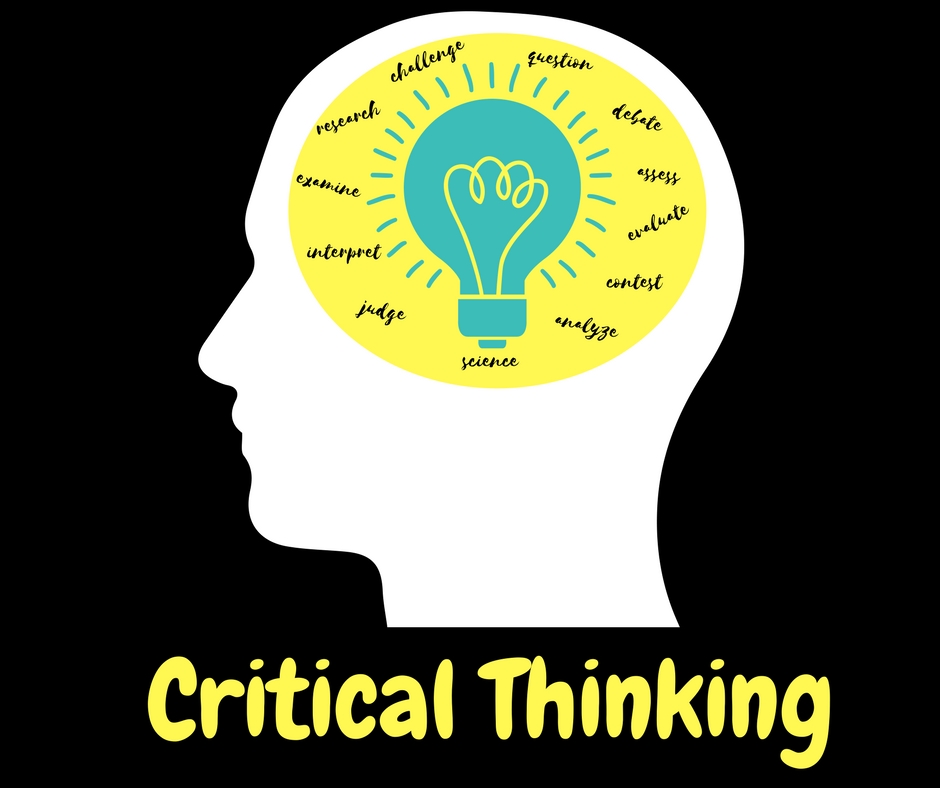Critical Thinking: A Key Competency for Current Learners
Throughout today's rapidly changing world, the potential to think critically is more important than ever with regard to students. As they navigate an abundance associated with information and deal with complex challenges, developing essential critical thinking about skills becomes a cornerstone with their schooling. These skills not only enhance academic functionality but also put together learners for actual decision-making, encouraging these people to approach issues with a careful and analytical attitude. Recognizing the value of critical thinking about in modern training, educators are increasingly dedicated to equipping pupils using the tools they will need to survive.
But what exactly constitutes effective critical thinking? This post will explore the important skills every pupil should develop, helping to identify sturdy critical thinkers inside the classroom. Simply by examining key attributes for instance problem-solving capabilities, logical reasoning, plus the convenience of 3rd party thought, we can acquire insights into fostering an environment wherever students can blossom as confident in addition to competent thinkers. Understanding the role of analysis and encouraging curiosity can not only allow students but likewise facilitate an increased engagement with their studying experiences.
Essential Critical Thinking Skills

Critical thinking includes a variety involving skills that are really vital for individuals to be able to navigate the difficulties of the current world. One involving the foundational abilities is analysis, which often involves breaking decrease information into their constituent parts to understand its framework and meaning. Powerful students engage with material actively, questioning assumptions and discovering underlying principles. This analytical mindset allows learners to detect the relevance associated with information, ultimately fostering deeper comprehension and even retention of knowledge.
Another crucial skill is rational reasoning, which allows students to make audio judgments based on obtainable evidence. Strong important thinkers are great at identifying reasonable connections between concepts and evaluating disputes critically. This talent extends to recognizing logical fallacies and understanding the difference involving objective facts and emotional responses. The particular ability to purpose logically strengthens students' capacity to build well-founded arguments plus to distinguish reliable information from misinformation.
Furthermore, creative thinking performs a key role in enriching critical thinking skills. It involves the ability to technique problems from special angles and generate innovative solutions. Students who think significantly and creatively generally exhibit a robust impression of curiosity, forcing them to find out and seek out new knowledge. This mixture of analytical, logical, and creative abilities empowers students to be able to tackle challenges in their academic efforts and prepares these people for future problem-solving in real-world scenarios.
Determining and Evaluating Critical Thinkers
Identifying strong crucial thinkers in their classroom consists of observing specific qualities and behaviors that will indicate a sophisticated amount of reasoning. These students tend in order to ask insightful inquiries and demonstrate an eagerness to participate in discussions. That they often seek dépuration on complex subjects and are comfortable challenging widely accepted views, showcasing their very own capability to think separately. Additionally, these scholars display a sturdy sense of interest, which drives them to explore subject matter more deeply plus find diverse points of views.
Any time evaluating a student's problem-solving abilities, this is crucial to look for their approach to be able to tackling challenges. Solid critical thinkers assess problems systematically, splitting them down in to manageable components whilst assessing different possible solutions. They display an aptitude for applying logical thinking and can differentiate between facts plus opinions. Furthermore, their particular decision-making process often includes weighing research and considering the implications of their very own choices, demonstrating the analytical mindset.
Observing precisely how students think about their own own thinking can offer significant insights into their critical thinking skills. Those who engage in self-assessment are more likely to recognize biases within their reasoning in addition to consider their presumptions critically. Moreover, promoting an environment that encourages questioning in addition to debate can boost having these skills, as students figure out how to articulate their particular thoughts clearly in addition to understand opposing opinions. As critical thinking in education , realizing these signs will be essential to compliment and nurture the introduction of successful critical thinking on all students.
Developing Critical Thinking in Students
To foster critical thinking in students, tutors should cultivate an atmosphere that encourages attention and questioning. Joining students in discussion posts that require these people to express their opinions and look at alternative viewpoints is essential. By asking open-ended questions in addition to challenging students to elaborate on their thoughts, teachers produce opportunities for further analysis. This practice not just enhances knowing but in addition empowers college students to believe independently, installing the groundwork for strong critical thinkers.
Combining problem-solving activities into the curriculum is usually another effective method. Students can create their critical considering skills through actual scenarios and situation studies that require analytical thinking and thought. Encouraging group work allows learners in order to collaborate and promote varied perspectives, which could prospect to more powerful conclusions. Educators may also highlight the importance of assessing sources and being familiar with biases, equipping college students with the tools required to assess information critically.
Finally, reinforcing the importance of expression and self-assessment helps in the development of important thinking. Providing learners with for you to examine their thought processes and decisions fosters a deeper understanding of their reasoning. Encouraging them to keep journals or take part in discussions about their learning experience can help spotlight areas for development. As https://mccoy-berntsen-2.hubstack.net/empowering-minds-the-imperative-critical-thinking-skills-to-develop figure out how to recognize their strengths and weaknesses in thinking, they will build confidence and become more competent decision-makers, ready to tackle complex challenges inside their academic and personal lives.